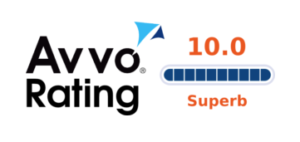



Using Qualified Representation For Your Prudential Disability Appeal
 It can be challenging to navigate the complicated world of disability claims, particularly when dealing with large insurance providers like Prudential. Knowing the procedure and your rights are essential if you find yourself facing a Prudential Disability Appeal.
It can be challenging to navigate the complicated world of disability claims, particularly when dealing with large insurance providers like Prudential. Knowing the procedure and your rights are essential if you find yourself facing a Prudential Disability Appeal.
Who is Prudential Insurance Group?
Since 1875, the Fortune 500 company Prudential has been a significant player in the insurance sector. Life insurance, asset management, mutual funds, pension and retirement-related investments, annuities, and real estate are just a few of the many goods and services they provide. The second-largest provider of group life insurance in the US is Prudential. It is the largest insurance company in the country. Additionally, they are a top provider of both short- and long-term disability insurance.
Long-Term Disability Coverage
Prudential’s long-term disability coverage often takes over where the short-term disability policy ends, replacing part of a policyholder’s salary if they become disabled for an extended period. These group disability plans may be paid by the employer, or the costs of coverage may be shared between the employee and employer.
Facing a Prudential Disability Appeal
The process of claiming these benefits can be challenging, especially when facing a Prudential Disability Appeal. Prudential has a financial incentive to deny a policyholder’s claim for disability benefits. They deny most claims during the initial review process. If a state or federal court overturns their denial and makes them pay, in most cases, there is no punishment under ERISA statutes. They would only have to pay out what they owed you in the first place.
Software Engineer with Mental Condition Wins Prudential Disability Appeal
The case involves a client who was receiving long-term disability benefits from Prudential for severe anxiety, post-traumatic stress disorder (PTSD), and recurring panic attacks. For 18 months, Prudential recognized that these conditions prevented him from working. Then, without any in-person evaluation, Prudential determined he was “better” and could return to work.
Understanding Your Rights
Unfortunately, many people who rightfully deserve and desperately need their benefits give up when their claim is initially denied. Most are unaware that they can appeal this decision or what it takes to successfully appeal Prudential’s denial. Understanding your rights during the appeals process is crucial to ensure you get a fair hearing from the insurance company review board.
The Role of ERISA in Prudential Disability Appeals
The Employee Retirement Income Security Act of 1974, more commonly known as ERISA, is a federal law enacted by Congress that establishes minimum standards designed to protect the retirement, health, and other welfare benefit plans of private industry employees from fiduciary misuse. While ERISA gives policyholders the right to appeal a decision to deny benefits, the insurance companies often use its complex rules and regulations to make it difficult for a disabled worker to mount an effective Prudential Disability Appeal. Failing to meet even one of the eligibility requirements of your Prudential ERISA-regulated employee health benefits plan could result in your claim being denied with no further chance of appeal.
Prudential’s Tactics
Another tactic employed by Prudential is to offer a lump sum settlement or buyout of a policyholder’s disability policy. While a large upfront settlement may sound attractive, a buyout is often a way for the insurance company to keep from paying additional hundreds of thousands of dollars that may be legally accessible to the policyholder. Before accepting such an agreement, policyholders should ensure the amount being offered fully covers the costs of their disability, including future medical and living expenses.
Unfair, Biased, and Unreasonable Practices
There have been several court cases in recent years alleging that Prudential’s denial of disability benefits is unfair, biased, or unreasonable. These cases highlight the importance of understanding your rights and the Prudential Disability Appeal process.
Navigating the Appeal Process
The Prudential Disability Appeal process can be overwhelming, particularly when you’re dealing with health issues. It’s essential to gather all necessary medical documentation and fully understand the terms of your policy. Remember, the appeal process is not just about proving your disability but also about demonstrating how it affects your ability to work.
Moreover, it’s crucial to be aware of the timelines. Missing a deadline can result in your appeal being denied, leaving you without the benefits you need. Therefore, it’s important to act promptly and ensure all paperwork is submitted on time.
Finally, don’t be discouraged by an initial denial. Many claims are denied at first but are later approved during the appeal process. Persistence and a thorough understanding of the process can be key to a successful Prudential Disability Appeal.
Representing Clients Filing Claims With Prudential Insurance Group
Facing a Prudential Disability Appeal can be a daunting task, but understanding the process, your rights, and the tactics employed by insurance companies can significantly improve your chances of success. Remember, you are not alone in this journey, and there are resources available to help you navigate this complex process. Call our Prudential Disability Insurance Lawyer today.






